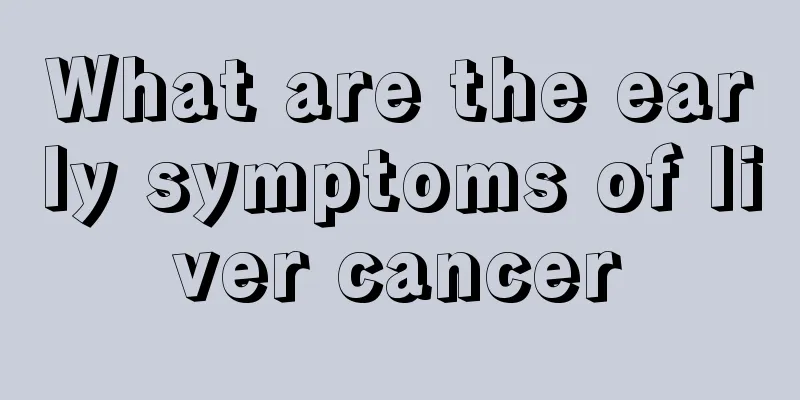Headache is actually a precursor to nasopharyngeal cancer? Do you know the 6 signs of nasopharyngeal cancer?

|
Headache is one of the common symptoms of discomfort, and many people do not take it seriously. However, a small headache may also hide a huge hidden danger. Headache is a common symptom of nasopharyngeal cancer in the early stage. The headache caused by nasopharyngeal carcinoma manifests as an irregular headache in the early stage. The duration of the headache varies, and intermittent headaches may occur. In the late stage, it manifests as a continuous migraine with a fixed location. Why does nasopharyngeal cancer cause headaches? The headache caused by nasopharyngeal carcinoma may be related to the stimulation of neurovascular reflex by tumor growth. For example, stimulation of the trigeminal nerve can cause headache symptoms. Late-stage nasopharyngeal carcinoma tumors can destroy the skull base, spread intracranially, and affect the cranial nerves, causing headaches. What are the early symptoms of nasopharyngeal cancer? 1. Swollen cervical lymph nodes More than 60% of nasopharyngeal carcinoma patients are found to have swollen lymph nodes during the first treatment. The lumps are located in the upper neck and are painless. They are single or multiple, hard in texture, and the anti-inflammatory treatment effect is not obvious. 2. Retractile bloody nasal discharge in the morning Nasopharyngeal cancer patients may find blood in their spit, which is more common in the morning after getting up. 3. Ear stuffiness and tinnitus If the tumor blocks the opening of the Eustachian tube, it will cause tinnitus in the early stage, which will gradually develop into hearing loss and can be easily misdiagnosed as otitis media. 4. Headache Headache is the most common symptom in patients with nasopharyngeal carcinoma. This is pain caused by the tumor invading the skull base bone or the brain. 5. Be cautious if you have a long-term nasal congestion If the nasopharyngeal cancer tumor blocks the nostrils, the patient will often feel nasal congestion. The nasal congestion symptoms will progressively worsen, and the treatment effect of rhinitis and colds will not be obvious. 6. Facial numbness and double vision If the nasopharyngeal carcinoma tumor grows into the skull, it will compress the nerves and cause facial numbness, difficulty chewing, and a tingling sensation on the face. When the nasopharyngeal carcinoma tumor compresses the oculomotor nerve, trochlear nerve, and abducens nerve, the patient will experience double vision when looking to the side. |
>>: HPV vaccine to prevent cervical cancer, should we get it or not?
Recommend
This body is too short, sooner or later you will get a heart attack
A life expectancy survey report by researchers at...
If you have enteritis, you should pay attention to your daily eating habits
Enteritis is a very common disease for everyone. ...
The most effective test for liver cancer screening
The most effective tests for liver cancer screeni...
Normal pulse pressure value
Pulse pressure is an indicator that is of great s...
What are the examinations for fibroids
Maybe many people have not heard of fibroid disea...
Does white tea refresh you?
White tea is a very popular tea, and the processi...
What causes red ears? It’s because of this!
Red ears are very common in life, and there are m...
What should I do if my wisdom teeth grow crooked
Wisdom teeth grow crooked. In fact, this is what ...
What is usually the cause of itching on the body
Everyone must be familiar with dry, rough and itc...
What to do if you can't swallow food due to tongue cancer
The most painful thing about having tongue cancer...
What are the common symptoms of lung cancer? 4 common symptoms of lung cancer
Experts say that in the early stages of lung canc...
Early symptoms of cervical cancer can easily cause confusion
The early symptoms of cervical cancer are not ver...
The acne disappeared after taking anti-inflammatory medicine
Many times, if we are sick, we need to use some a...
Face swelling after waking up
Many people have experienced facial edema, which ...
Practical self-treatment for chronic nephritis?
Nephritis is a disease with a very high incidence...









